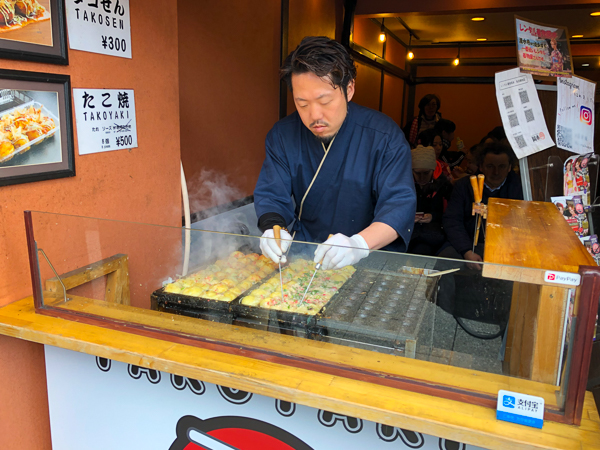
Walking through the busy streets of tourist attractions and local festivals in Japan, you’ll see a myriad of colorful street vendors lined up to fulfill your taste buds. While the options are absolutely endless, there is a good list of Japanese street food you must try.
These are the more traditional Japanese street vendor foods that have stood the test of time, delighting the generations of Japanese children and adults year after year. They aren’t the recently made-up spectacular lookin’ food that look fantastic on Instagram but taste lousy.
Be sure to put these on your “Foods I Must Try” list when you visit Japan. You can find these throughout Japan as none of them are regional specific. Look for them at local festivals, tourist attractions (although the prices tend to be higher), street markets and even grocery stores. But looking for these just may be half of the fun!
Before you start your food treasure hunt
Before you start to eat your way through Japan, be sure to read this article about etiquette rules you should know in Japan. Many travelers to Japan do not realize that it is not typically polite to eat while you walk! If you buy something from a local vendor, you will be asked to eat your food right on the spot, maybe in a designated area.
Mitarashi Dango
This is at the top of the list for a reason. It’s my childhood favorite and I must grab one every time I see one! 5 to 6 chewy rice balls or “dango” are skewered onto a stick, grilled with the savory, tangy, slightly sweet sauce. These unassuming treats have such delicate and complex flavor that’s very unique to Japan.
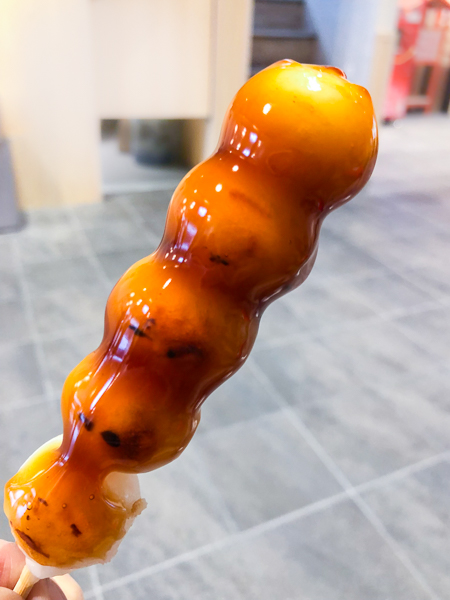
Takoyaki
These balls made with savory batter contains “tako” or octopus pieces. Although “octopus balls” may not sound so good, you will not regret trying them. Cooked octopus pieces are fairly small and they are not tough and chewy. You may not even realize that you are eating octopus at all. It is best to eat them while they are hot. The warm, moist center and the firm octopus pieces are a delicious combination.
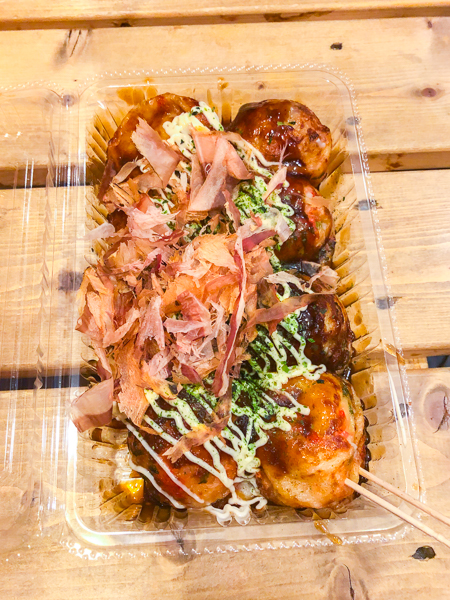
Soft serve ice cream
You can find oh-so-many flavors in Japan and they are all so delicious! There are some specific flavors that are only available in certain areas. For example, Okinawa has a purple sweet potato flavor ice cream. Look for some unique flavors that you can’t find anywhere else – like sakura, cherry blossom flavor or matcha, green tea flavor.
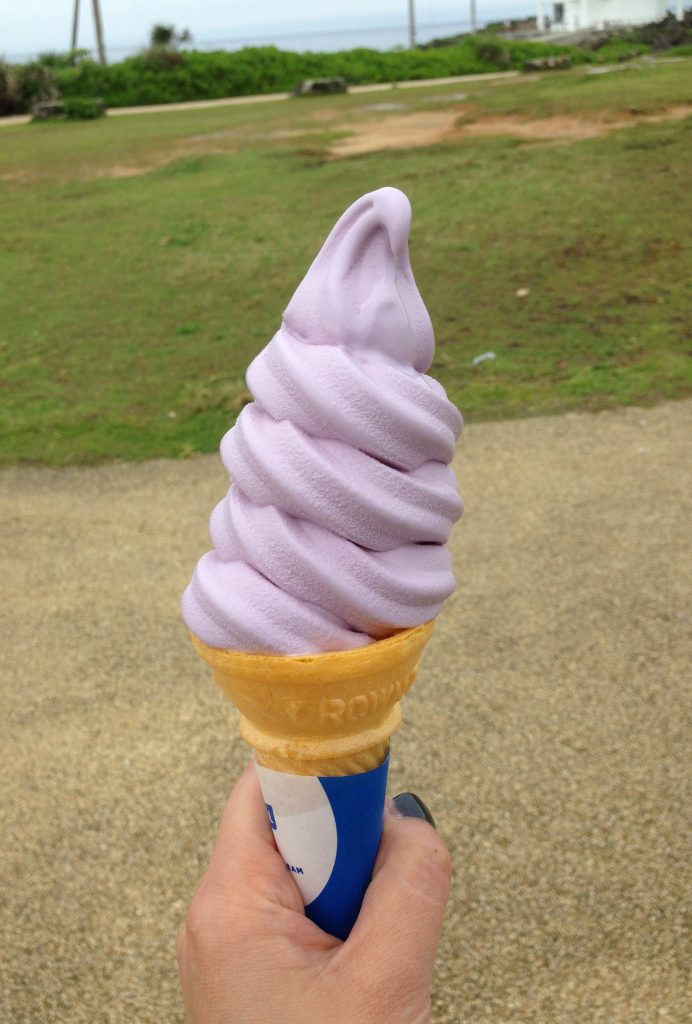
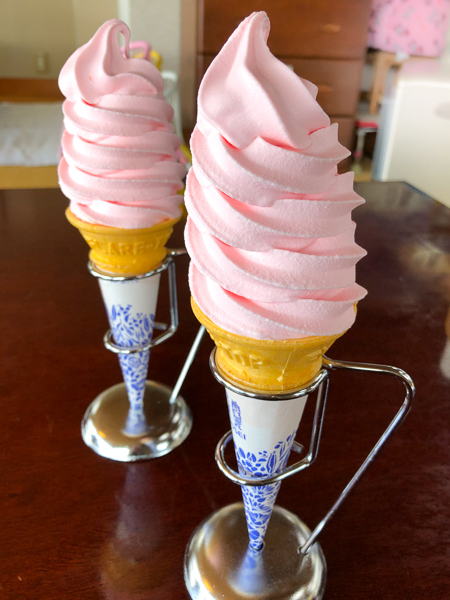
Daifuku mochi – confectionary
Many of you are already familiar with “mochi” or the Japanese rice cakes made with glutenous rice. Daifuku mochi is a small mochi with sweet red bean paste (azuki) center.
Strawberry daifuku mochi, with a fresh strawberry on the inside or on top, was the craze several years ago and many confectionery stands still carry them. If you’ve never tried a Japanese strawberry, this is a great way try one. They are seriously the sweetest in the world.
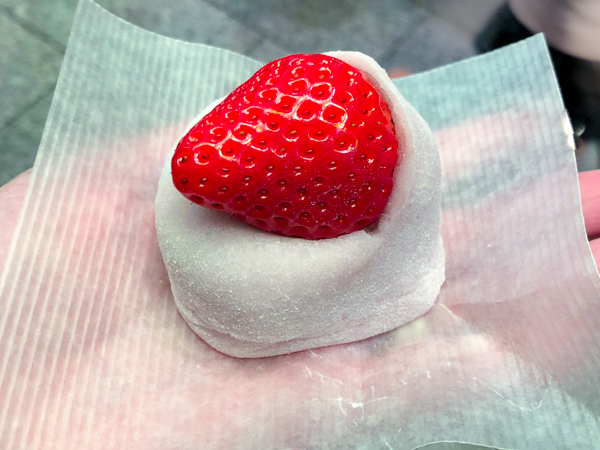
Seafood on a stick
You know they say that everything tastes better on a stick. That also goes for seafood! With so many variations of them, if you love seafood, you should try as many as you can. You can typically find grilled fish on a stick (which is a must-try because they are always super delicious), squid, prawns, baby octopus and many others.
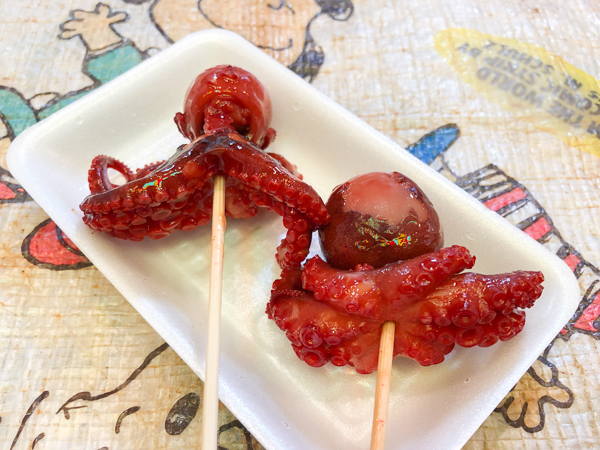
Yaki Tomorokoshi – Grilled corn
If you are lucky enough to find a vendor selling grilled corn, GET ONE! Japanese corns are the best there is! (This is coming from someone who’s lived in Ohio, USA for the majority of her life! I live near concrete statues of corn, for goodness sake!)
The soy sauce-based sauce that these are grilled with is the perfect match to the sweet and flavorful Japanese corn. If you can’t find one but want to get a sense of what they taste like, try our yaki tomorokoshi recipe.
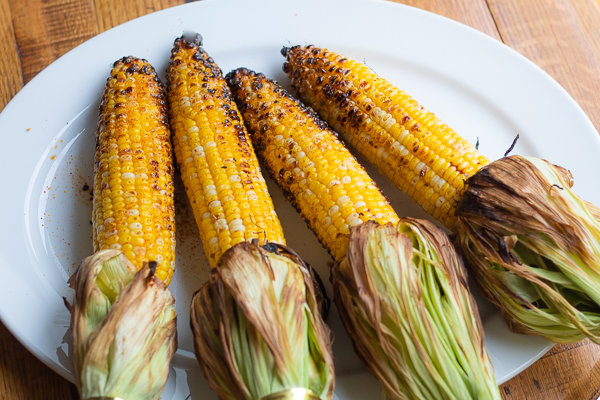
Okonomiyaki
These savory pancakes can be mainly found at okonomiyaki specialty restaurants. But if you do find them from a street vendor, it usually is a great, hearty choice as a meal.
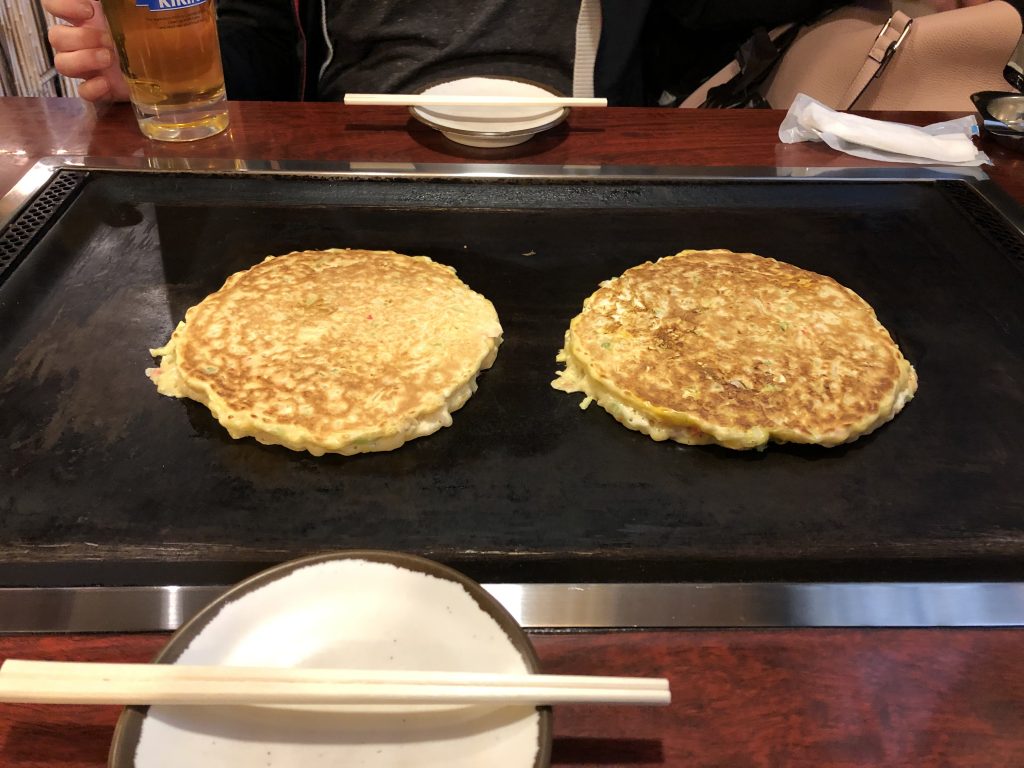
Yakisoba
Very simple stir-fried noodles usually made just with onions and cabbage, topped with green seaweed flakes, bonito flakes and red ginger. You can find premade yakisoba usually at the grocery store, too. If you find that you love it, here is an easy recipe for yakisoba that you can make right at home.
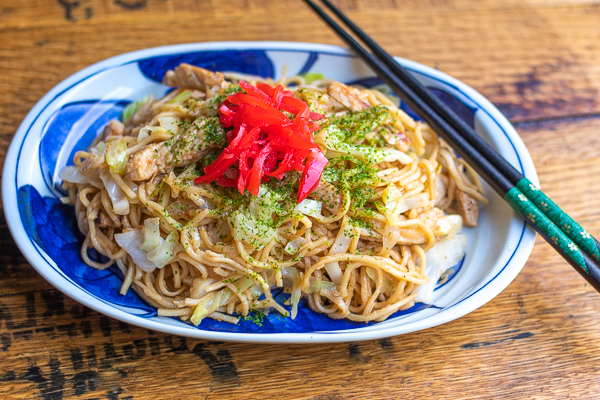
Warabi-mochi
Another one of the oldie but goodie, goody. These light and sweet gelatin-like mochi are coated with kinako or the soy flour. Warabi-mochi are considered summer-time treats because of the light and refreshing mochi compared to the typical chewy, glutenous mochi. They are available year-round but more prevalent in the summer.
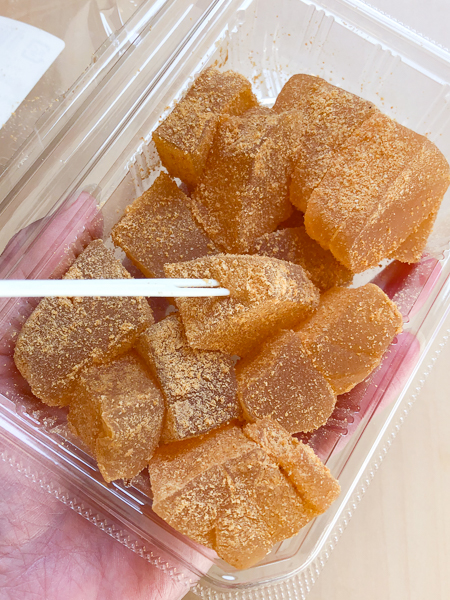
Taiyaki
“Tai” means red snapper (or sea bream) in Japanese. But don’t let the name fool you. It’s not made with any fish at all. It’s a fish shaped confection – almost like sweet pancake – with sweet red bean paste (azuki) center. While azuki center is traditional and most common, there are taiyaki with assortments of center options such as custard, chocolate cream or matcha cream.
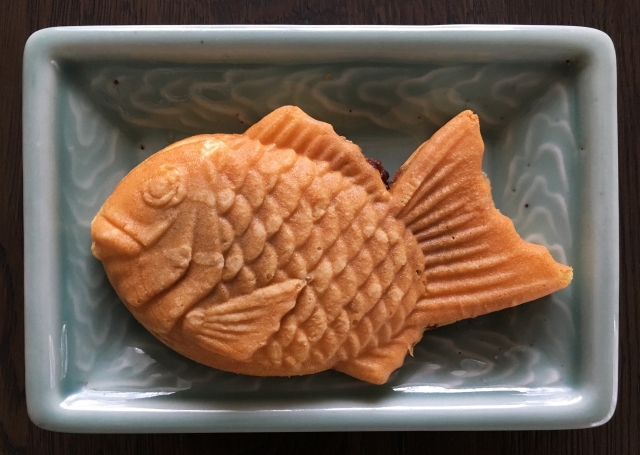
Gohei-mochi
Another one of my favorites! Glutenous, oval- or oblong-shape rice patty on a stick, grilled with miso base sauce. It’s the type of food that makes you totally appreciate the versatility of miso, if you’ve only associated miso with the soups in the past.
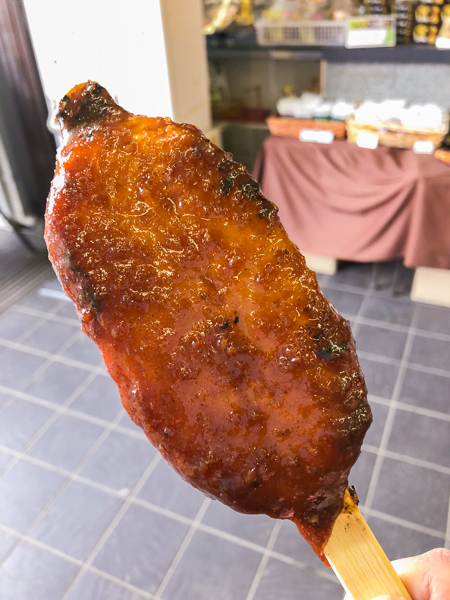
Yaki Imo – Roasted sweet potato
Roasted Japanese sweet potatoes are another one of the treats that you must try if you can find one. They tend to be more available in the fall. But you may find them throughout the year in a grocery store or in the food sections (usually in the basement) of the department stores.
Compared to other sweet potatoes, the Japanese sweet potatoes are meatier and sweeter, and produce flaky golden roasted potatoes.
What’s your favorite Japanese street food?
Is your favorite listed here? Or is there another street food in Japan not listed here but is a must-try? Let us know!
Pin it for later!
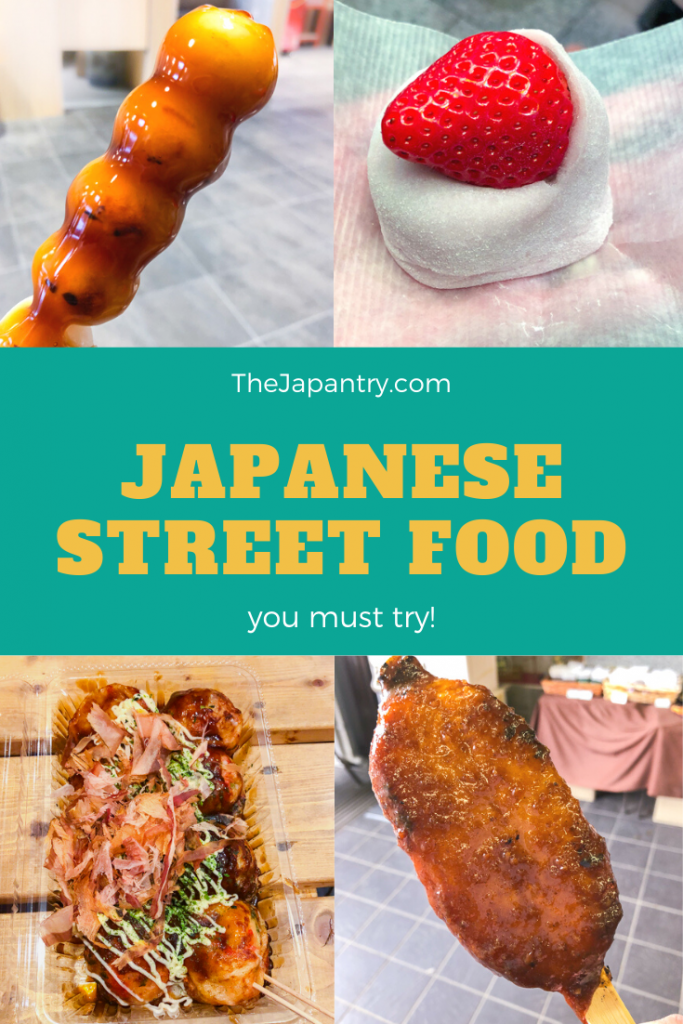
Related Posts
What to do in Nagoya, Japan
Nagoya has been one of the overlooked cities in Japan when it comes to tourism…
May 22, 2019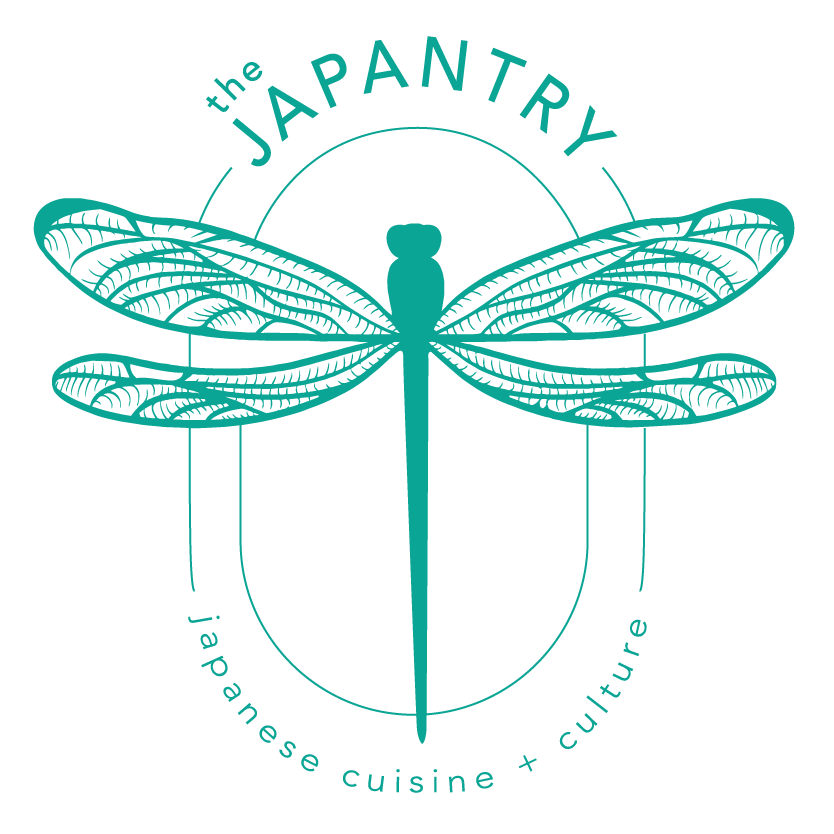

Beth Shields | 14th Jul 20
Very interesting read. What a selection for sure. Thanks for sharing.
admin | 15th Jul 20
Thanks for reading and for your comment, Beth!